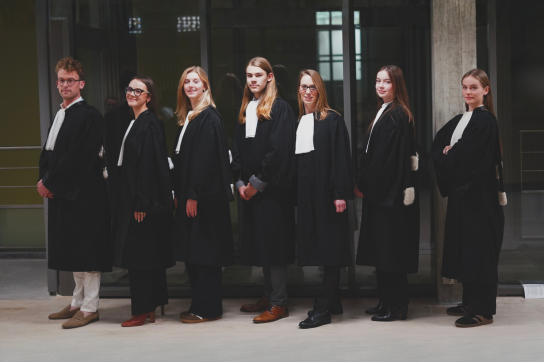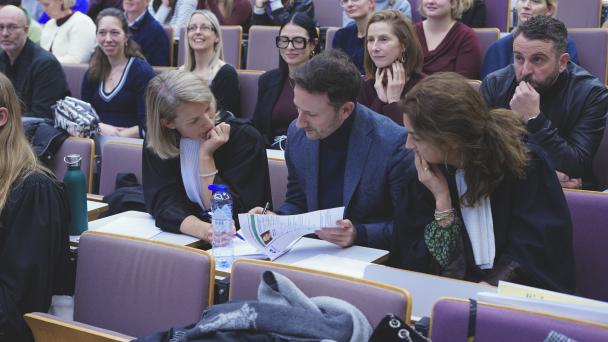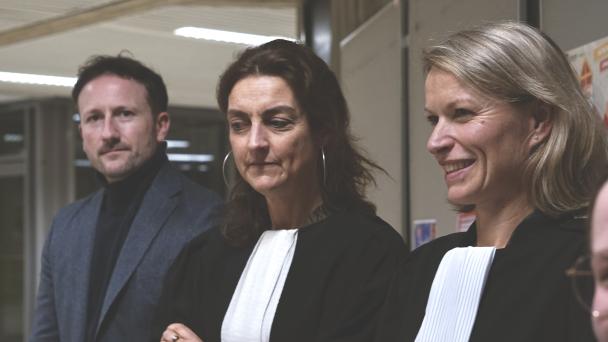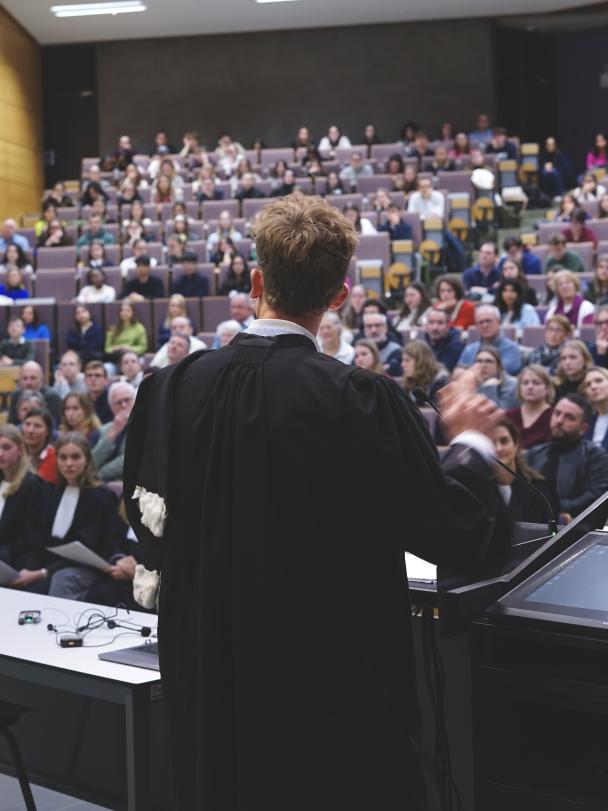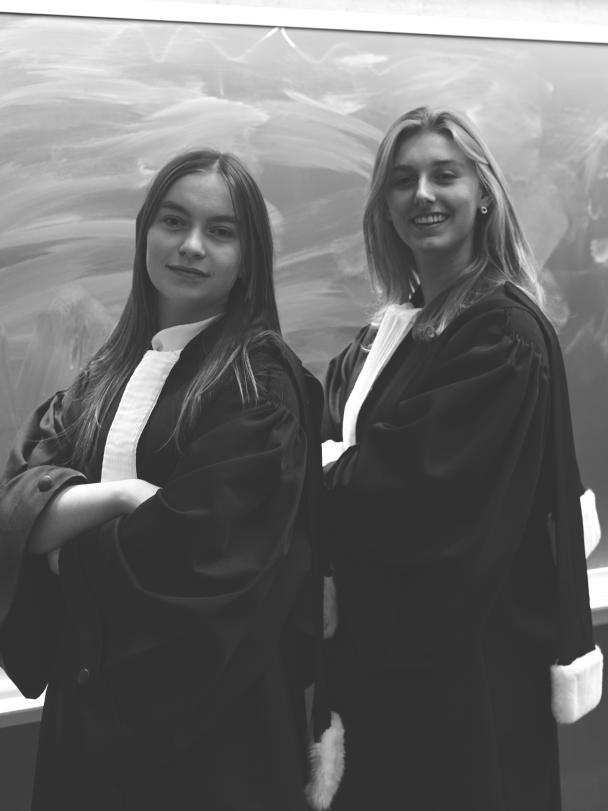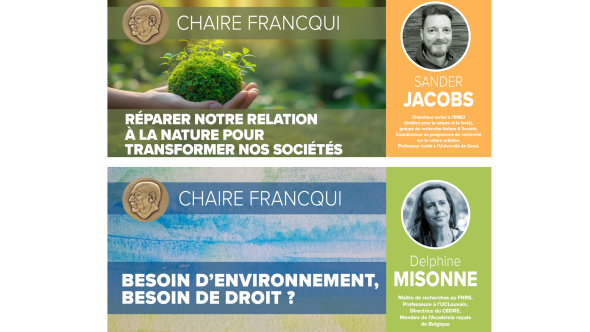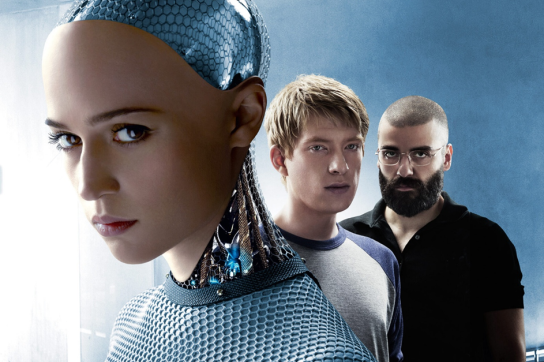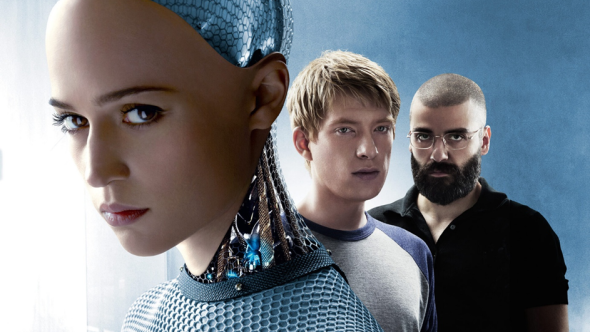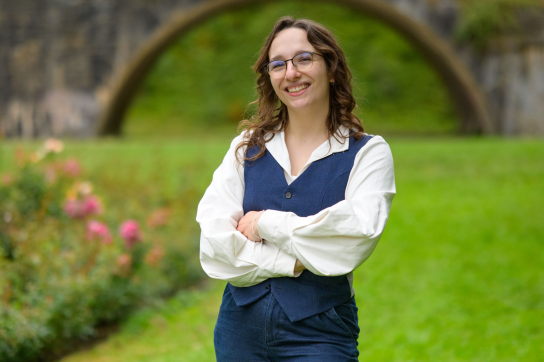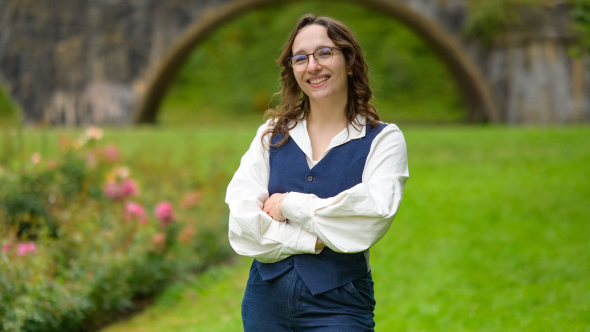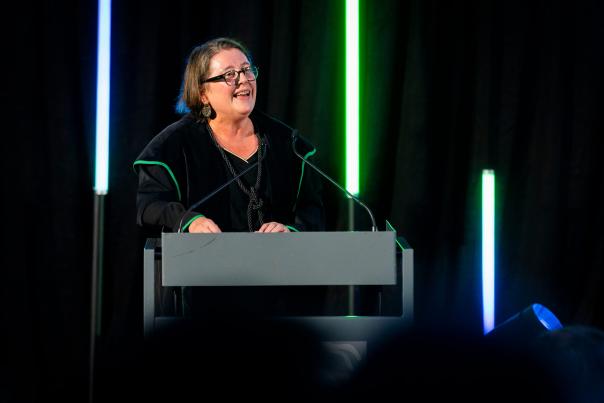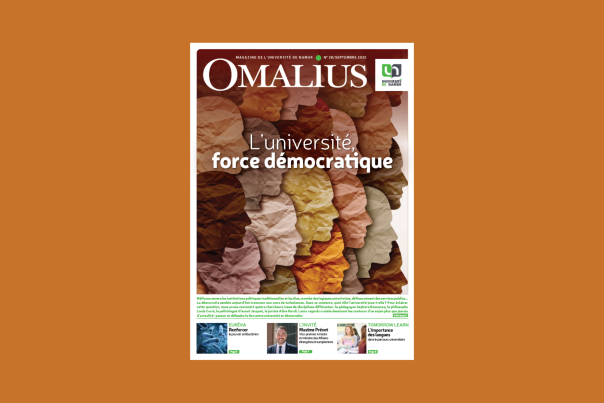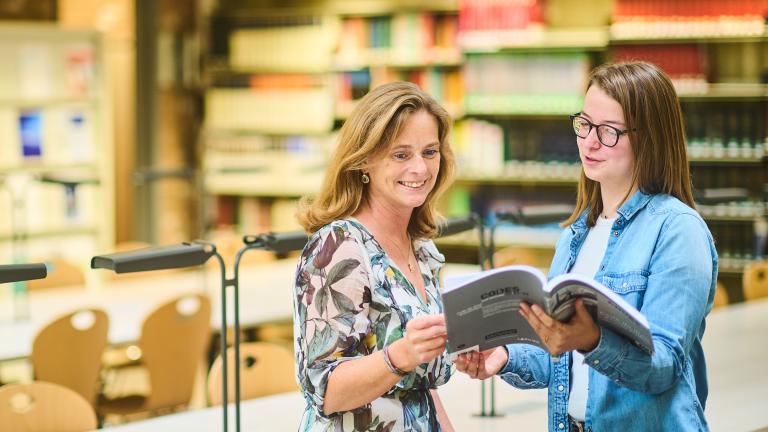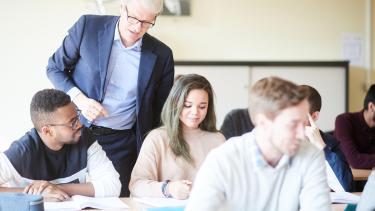The Faculty of Law is committed to helping students achieve excellence and autonomy. It conducts cutting-edge, interdisciplinary scientific research in key areas, notably through its research centers, CRIDS and Vulnérabilités et Sociétés. It organizes various services for society, such as continuing education for legal professionals.
Chaire Francqui 2025-2026 | Besoin d'environnement, besoin de droit ?
La Faculté de droit accueille la professeure Delphine Misonne à l’occasion d’une Chaire Francqui qui lui a été décernée par la Fondation Francqui : « Besoin d’environnement, besoin de droit ? ». L’organisation de cette chaire s’intègre pleinement dans le Fil Rouge de la Faculté de droit dédiée à ce substrat essentiel à la vie qu’est l’environnement, la nature, notre terre : « Réenchanter la terre »
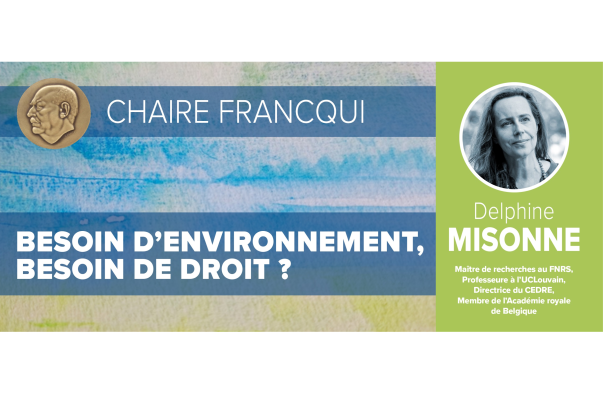
The studies
The Faculty of Law offers a 3-year bachelor's degree course, either on a daytime or a staggered timetable. Bachelor's studies in law at the University of Namur offer a complete basic legal training, aimed at turning students into excellent general lawyers suitable for the Master's program in law.
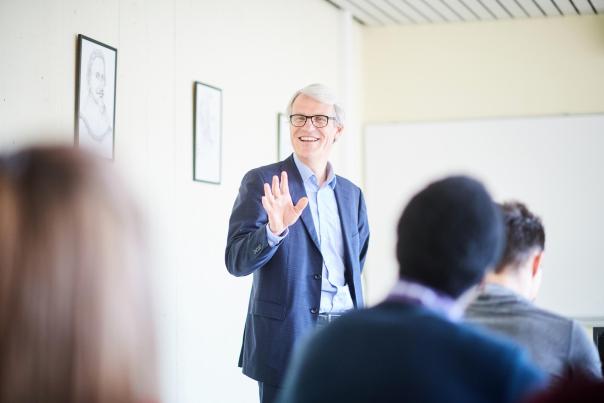
Research
The Faculty of Law conducts cutting-edge, interdisciplinary scientific research. Rooted in today's society, it focuses its research priorities, in particular, around its two research centers: the CRIDS and the Centre Vulnérabilités et Sociétés. Doctoral training is offered to lawyers wishing to complete a doctoral thesis.
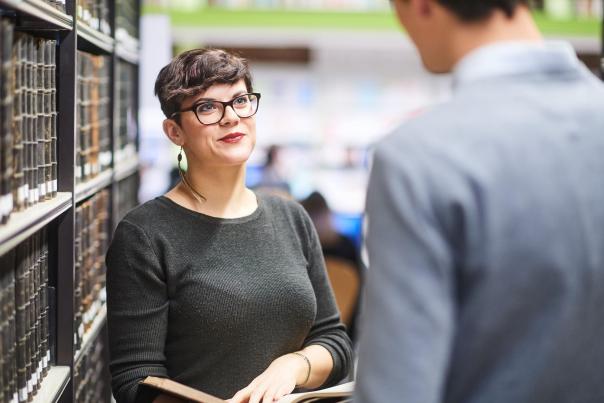
Service to society
As well as teaching and research, the University has a mission to serve society. As part of this, the Faculty of Law offers various continuing education activities for legal professionals. The Faculty's blog is also available, and shares Belgian and international legal news. Last but not least, the Faculty of Law Alumni Association is active: it's impossible to forget the Faculty after you've been there!
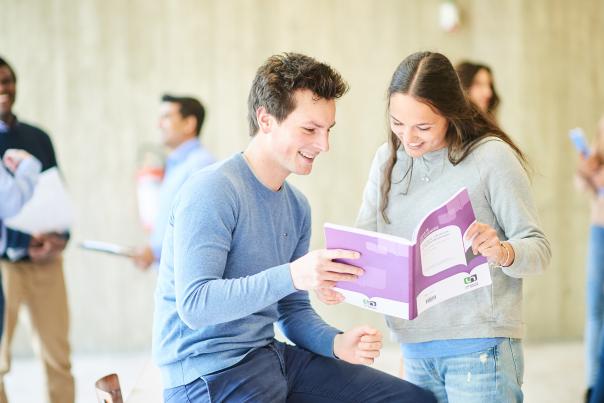
Organization
The Faculty is optimally organized to manage its missions of teaching, research and service to society.
The common thread in law
Since 2022, the Faculty of Law has chosen a theme for the year that unites the entire Faculty, students and teachers alike, across all blocks. This topic will be exploited in courses, framings, assignments, and during lectures and cultural activities offered throughout the academic year. A new dynamic that makes the University of Namur's framing even more unique.
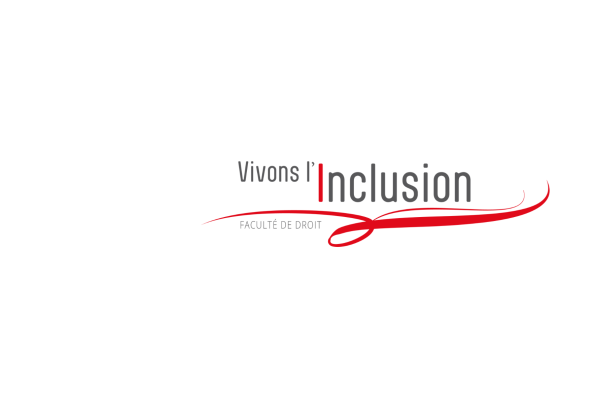
The Faculty of Law in figures
Faculty Library
The Faculty of Law library holds around 20,000 books and subscribes to some 150 periodicals covering the various branches of law. It also houses the CRIDS (Centre de Recherche Information, Droit, Société) documentation center, as well as the Vulnérabilités et Sociétés documentation center.
Spotlight
Agenda
Francqui Chair 2025-2026 in the Faculty of Law | Need for the environment, need for law?
Lesson 3 | Delegalizing pollution: health and climate at the heart of the debate
Speaker: Delphine Misonne, FNRS Senior Research Fellow, Professor at UCLouvain, Director of CEDRE and member of the Royal Academy of Belgium.
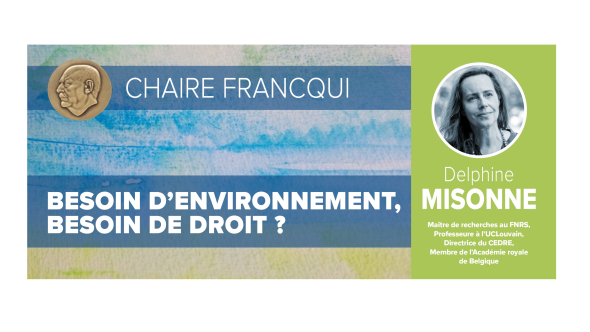
This Francqui Chair offers a fresh perspective on the advances and tensions that characterize the way in which the law currently organizes society's relationship with the environment, as an essential substrate for human life and the balance of ecosystems. Far from presenting this law as having reached its peak, it is its recent major advances that will be discussed, as well as the risks of regression that threaten it. If the ambition to protect the environment has indeed become a legal issue, how are its essential drivers evolving, whether in terms of climate, human health, or the status accorded to nature?
The conference will be followed by a local drink offered by the Cercle de Droit, the Régionale la Binchoise, and the Régionale RTM.
Free event. Registration strongly recommended.
Conference - The Ombudsman: Administrative Mediation
Conference organized by the Namur Lawyers Association.
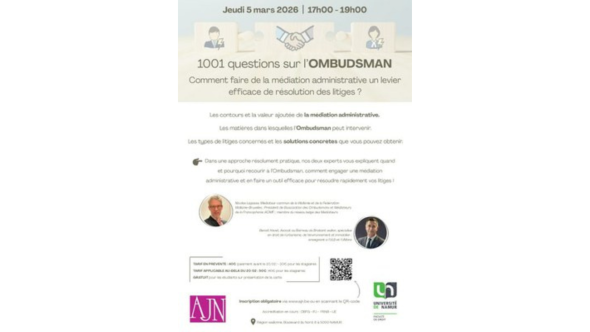
Program
1001 questions about the Ombudsman - How can administrative mediation be used as an effective tool for dispute resolution?
- The scope and added value of administrative mediation
- The matters in which the Ombudsman can intervene
- The types of disputes concerned and the concrete solutions you can obtain.
Taking a resolutely practical approach, our two experts explain when and why to call on the Ombudsman, how to initiate administrative mediation, and how to make it an effective tool for quickly resolving your disputes!
Speakers
Nicolas Lagasse | Joint Mediator for Wallonia and the Wallonia-Brussels Federation; President of the Association of Ombudsmen and Mediators of La Francophonie (AOMF); member of the Belgian network of mediators
Benoit Havet | Lawyer at the Walloon Brabant Bar, specializing in urban planning, environmental, and real estate law; lecturer at the ULB and UMons
Registrations
Registration is required via https://www.ajn.be (payment confirms registration).
- Advance registration fee (payment before February 20, 2026): €40 (€30 for trainees)
- Price after February 20, 2026: €50 (€40 for interns)
- Free for students upon presentation of student ID
Accreditation request in progress for IFJ, OBFG, FRNB, and IJE.
Further information: ajn@unamur.be.
Francqui Chair 2025-2026 in the Faculty of Law | Need for the environment, need for law?
Lesson 4 | Bees, humans, and glaciers
Speaker: Delphine Misonne, FNRS Senior Research Fellow, Professor at UCLouvain, Director of CEDRE and member of the Royal Academy of Belgium.

This Francqui Chair offers a fresh perspective on the advances and tensions that characterize the way in which the law currently organizes society's relationship with the environment, as an essential substrate for human life and the balance of ecosystems. Far from presenting this law as having reached its peak, it is its recent major advances that will be discussed, as well as the risks of regression that threaten it. If the ambition to protect the environment has indeed become a legal issue, how are its essential drivers evolving, whether in terms of climate, human health, or the status accorded to nature?
The conference will be followed by a local drink offered by the Cercle de Droit, the Régionale la Binchoise, and the Régionale RTM.
Free event. Registration strongly recommended.


